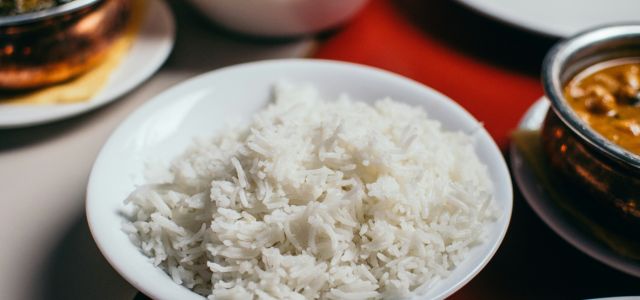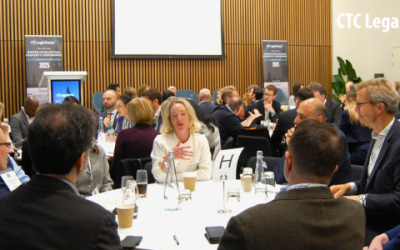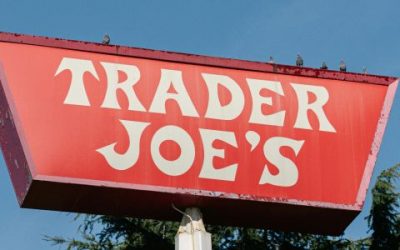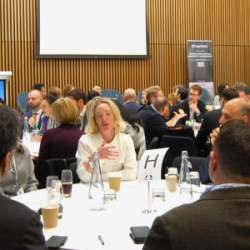In a recent judgment in the matter of PAS Agro Foods v. KRBL Limited (2025:KER:79840), the Kerala High Court addressed a crucial preliminary issue in intellectual property litigation: the territorial jurisdiction for filing a Rectification Petition under the Trade Marks Act, 1999, when an infringement suit is simultaneously pending in another jurisdiction.
The case involved a Special Jurisdiction Case (SP.JC) filed by the Petitioner (PAS Agro Foods, a Kerala-based firm) seeking cancellation of the INDIA GATE trademark registration, which was owned by the Respondent (KRBL Limited, a Delhi-based company) and registered at the Delhi Trade Marks Registry. The Respondent challenged the maintainability of the petition on two primary grounds: Lack of territorial jurisdiction and the case being premature.
The litigation timeline
The dispute originated when KRBL Limited filed an infringement suit (C.S.(Comm) No. 78/2025) against PAS Agro Foods in the District Court (Commercial), New Delhi. Following an interim injunction from the New Delhi Court on January 21, 2025, an Advocate Commissioner executed the order, seizing materials bearing the INDIA GATE name from the Petitioner’s business premises in Kerala. Crucially, the Petitioner filed the present Rectification Petition in the Kerala High Court on February 7, 2025, without waiting for any directive from the New Delhi Commercial Court. The Respondent’s preliminary application challenged this immediate recourse to the Kerala High Court.
Territorial jurisdiction: the proper forum for rectification
The core jurisdictional challenge required the Court to determine which High Court has the authority to hear a rectification petition under Section 57 of the Trade Marks Act, 1999.
Contesting views:
- The Respondent’s stance: Since the trademark was originally registered at the Trade Marks Registry, New Delhi, only the Delhi High Court (the Court exercising appellate jurisdiction over that Registry) had the jurisdiction to entertain the rectification petition.
- The Petitioner’s stance: Jurisdiction should follow the “cause of action” principle, as partially reflected in the CPC and related to infringement suits under Section 134(2) of the Act. They argued that since the alleged infringing activity and the seizure of their goods occurred within the jurisdiction of the Kerala High Court, a part of the cause of action arose there, making the Kerala High Court a proper forum.
The Court’s finding
The Honourable Mr Justice M.A. Abdul Hakim firmly sided with the narrower interpretation, respectfully adopting the reasoning from the Madras High Court’s decision in M/s. Woltop India Pvt. Ltd. v. Union of India (though noting its stay by the Supreme Court).
The Court reasoned that allowing jurisdiction based on the “dynamic effect” of registration or where the cause of action for infringement arises would lead to “jurisdictional chaos.”
The Court explicitly stated: “If rectification petitions are filed by the different defendants before different High Courts, the Court dealing with the infringement suit will have to wait for the decisions of different High Courts. If different High Courts pass conflicting orders, the situation will become worse.”
The judgment concluded that the scheme of the Act mandates a single forum for rectification of a specific registration. Therefore, the High Court exercising appellate jurisdiction over the Trade Marks Registry where the mark was registered is the sole proper forum for petitions. Since the registration was in Delhi, the Kerala High Court held it lacked jurisdiction.
Another ground, i.e., prematurity: the mandate of Section 124
The statutory requirement: Section 124 governs the procedure when the validity of a trademark is questioned during an infringement suit. The Court highlighted two key situations:
- If a rectification proceeding is already pending, the infringement suit must be stayed.
- If no proceeding is pending, the infringement court must first be satisfied that the plea of invalidity is prima facie tenable, frame an issue, and adjourn the case for three months to allow the party to file the rectification.
Filing the rectification petition in the Kerala High Court before the Commercial Court in New Delhi framed the requisite issue, which meant the present case was filed prematurely, without exhausting the procedure mandated by Section 124(1)(ii).
Consequently, I.A. No. 2/2025 was allowed, and the Special Jurisdiction Case was dismissed as not maintainable.

Written by Vikas Asawat
Patent & Trade Mark Attorney, IPMagnitude

Written by Sohini Mondal
IPM Cell, IC&SR, IIT Madras, IPMagnitude
You may also like…
Winter Intellectual Property Conference 2025: a review
As a proud member of the Editorial Board of The Trademark Lawyer, I could not decline the invitation of the...
Takeaways from J.M. Smucker Company v. Trader Joe’s Company for brand owners regarding trade dress enforcement
Dupes and generic brands, which were once seen as inferior alternatives to name-brand products, have become more...
UEFA partners with Alliance for Creativity and Entertainment to enhance global anti-piracy strategy
October 21, 2025 - The Union of European Football Associations (UEFA) has officially joined the Alliance for...
Contact us to write for out Newsletter














